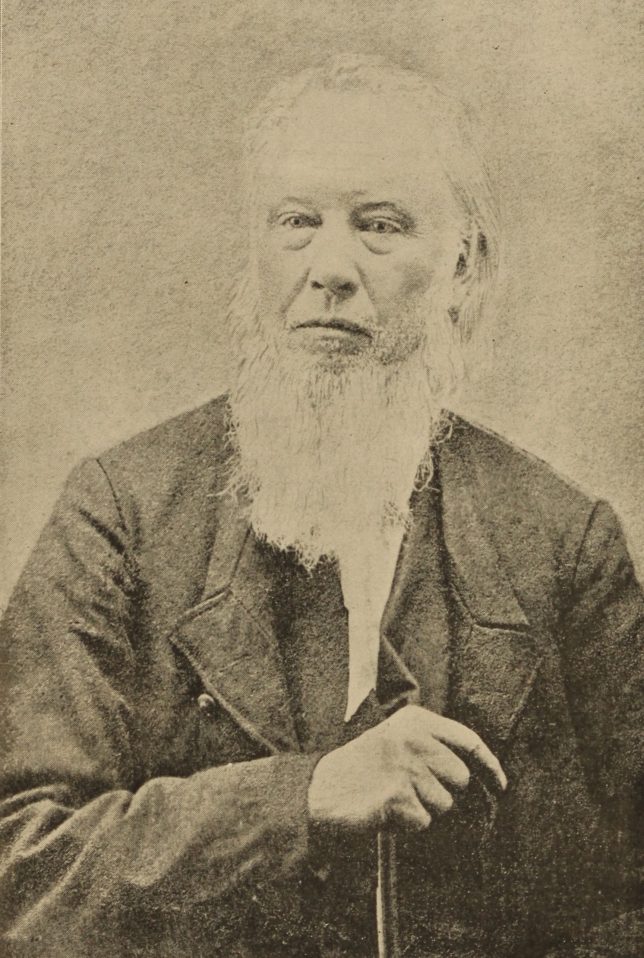It is Jesus’ darkest hour. The hour when His disciples abandon Him. The hour when one of the men who had performed miracles, who had preached “the kingdom of heaven is at hand,” betrayed Him with a kiss. The hour when He agonized in prayer, sweating as it were great drops of blood. His final 24 hours of life before being tortured, beaten, mocked, and killed.
They bound the hands of Jesus in the garden where He prayed; They led Him through the streets in shame; They spat upon the Savior, so pure and free from sin; They said “Crucify Him! He’s to blame!”
And in this hour—the hour in which Jesus pleaded with the Father, “Please, let this cup pass from me”—we catch a glimpse of Jesus as an encourager.
How is it that someone who knows they are about to suffer excruciating pain [the word “excruciating,” meaning out of the crucifix, was created because there was no word strong enough to convey the pain of being on a cross]—how is it that He could possibly think about encouraging people at a time like that?
Look at John 13 with me. We’ll start there.
You’re Going to Suffer
We are in the final evening of Jesus’ life. He, along with the twelve apostles, have been in the upper room, sharing what would be their final meal together before the darkest event in human history took place. The Passover has been celebrated, Jesus has washed their feet, then Judas leaves—setting everything into motion for the grand finale of the Jews’ plans to rid themselves of this Jesus. This is the setting in which some of Jesus’ most famous statements are found.
It is here that Jesus said, “I shall [only] be with you a little while longer…Where I am going, you cannot come” (13:33). The person that they had followed for 3 ½ years, that they were dedicated to—the man who was both their hero and their friend—says He’s about to leave, and from here on out, they won’t be coming with Him anymore. If you’ve ever had to say goodbye to someone you loved, knowing that you’d never see them again this side of eternity, you can understand the pain and heartache this would cause in the disciples.
It is here that Jesus cryptically tells Peter specifically that the apostle will be killed too: “Where I am going, you cannot follow me now, but you shall follow me afterward [or, later]” (13:36). Peter expresses his devotion to Jesus, says that he will die for the Lord, only to hear the words “Will you lay down your life for my sake? Most assuredly I say to you, the rooster shall not crow till you have denied me three times!” (13:37-38). Peter, especially, suffers internal disappointment here, knowing that his Master doesn’t believe him. Worse yet, the Master thinks that he will forsake Him.
Just a bit later, in chapter 15, Jesus drops another bomb on them. Once He leaves, things are going to get bad. “The world hates you…If they persecuted Me [and oh did they ever], they will also persecute you” (15:19-20). You can imagine their thoughts here: Wait, you’re leaving, and then they’re going to start attacking us?
“They will put you out of the synagogues” [literally, make you outcasts from the synagogue] (16:2). The Jews will excommunicate them. The synagogue was the center of the Jews’ religious life week in and week out. Being an outcast from the synagogue in essence made you an outcast among the Jews—the very ones they wanted to save.
“Yes, the time is coming that whoever kills you will think that he offers God service” (16:2). Wait, what? KILL us?!? They will be so rejected, so persecuted, their names and character besmirched so much that the Jews would think that killing them is actually doing God a favor, a service, by removing the worst kind of false teachers possible. This is some heavy-duty hatred and persecution that they’re in for.
“Because I’ve said these things to you, sorrow has filled your heart,” Jesus says (16:6). “Most assuredly I say to you, that you will weep and lament” (16:20) because Jesus was going to “go away”—that is, going to die.
Then Jesus completely cuts the legs out from under them. Not only will all these bad things happen to you after I leave, Jesus says, but “Indeed the hour is coming—yes, has now come [it is here!]—that you will be scattered, each to his own, and will leave me alone” (16:32). Outside pressures are hard. Persecutions are hard, but if you know you’re being persecuted for doing the right thing, at least you have some kind of peace in that knowledge. But Jesus tells them, in essence, ‘Y’all are about to cave to the pressure; you’re about to show your weakness; you who claim to love me are going to completely abandon me, run away like scared little children, and hope no one knows you were my disciples.’ They were going to have internal character failure, which is often the most difficult kind of persecution there is—knowing that you failed someone else in their time of need.
Really put yourselves in their sandals. No one wants to be persecuted, but they were going to be—that had to scare them. No one wants to be hated, but they were going to be—that had to cause their heart to drop. No one wants to be thought of as a coward, but that’s what they were going to be—and that had to make them sad. No one wants to lose their hero, their friend, but that was about to happen—and that would make them sad for their own loss. But the worst part of it all is that no one wants to watch their friend get tortured, mocked, spat upon, beaten, and killed—the helpless feeling had to overwhelm them as they realized they couldn’t save Jesus.
We all like to think that we could be a hero, stopping injustice, stepping in when someone is being wronged, standing up for the ones who are falsely accused or punished. But seeing Jesus on the cross, they wouldn’t—couldn’t—do anything.
Then in verse 33, Jesus gives the understatement of the evening: “In the world, you will have tribulation.” The sinful world, the world that doesn’t follow God, who doesn’t care about the doctrine of Jesus Christ—they will do their best to destroy you. They will try to undermine your efforts for God. They will make fun of you. They will mock you. They will try to discredit you. They will try to make you feel guilty for sharing the truth. They will try to pass laws to keep you from speaking up against sin. And that’s every bit as true today for us as it was for the apostles.
If we just left it here, it would seem like Christianity is a life of constant misery. If Jesus just stopped with the things we’ve touched on, then who could have blamed the apostles for running off?
But Jesus didn’t stop there, and we shouldn’t either.
Cheer up!
A quick glance through the same few chapters gives us some interesting insights. It seems that Jesus wasn’t trying to scare them, He was trying to prepare them. He wasn’t trying to frighten them, He was trying to enlighten them. He didn’t want to bring them fear, but cheer!
“Let not your heart be troubled,” Jesus said. “You believe in God, believe also in Me. In My Father’s house are many mansions; if it were not so, I would have told you. I go to prepare a place for you. And if I go to prepare a place for you, I will come again and receive you to Myself; that where I am, there you may be also” (14:1-3). Jesus says, Yes, I’m going away, but don’t be afraid or sad. I’m going to get a place ready so we can all be together forever and never have to separate again! I’ll be coming back to get you. This separation is only temporary!
“My peace I give to you… Let not your heart be troubled, neither let it be afraid. You have heard me say to you, ‘I am going away and coming back to you.’ If you loved me, you would rejoice, because I said, ‘I am going to the Father,’ for the Father is greater than I. And now I have told you before it comes, that when it does come to pass, you may believe” (14:27-29). Jesus says, Don’t be sad, and don’t be afraid. In fact, you should be happy for me, because I get to go home to be with the Father! But I want you to know what is going to happen ahead of time, so it doesn’t take you by surprise.
“Greater love has no one than this: than to lay down one’s life for his friends. You are my friends…” (15:13-14). I’m going to die, the Lord says, but I am doing it for you—because you are my friends.
There’s not a friend like the lowly Jesus, No, not one; No, not one.
“They will put you out of the synagogues; yes, the time is coming that whoever kills you will think that he offers God service… But these things I have told you, that when the time comes, you may remember that I told you of them” (16:2, 4). Yes, bad things will happen to you, but you will be prepared, and not be taken by surprise at the persecutions.
“You will be sorrowful, but your sorrow will be turned into joy.” (16:20). My death will cause you great sadness, but it will lead to a greater joy than you’ve ever known. I will be coming back, and your world—nay, the entire world—will never be the same. You will be persecuted, but instead of depressing you, you will rejoice over it! You will be blessed beyond measure to see some who persecute you turn in humble repentance and become your friends, co-laborers, and fellow-heirs of salvation. Blessed are those who are persecuted for righteousness’ sake indeed!
“You now have sorrow; but I will see you again, and your heart will rejoice, and your joy no one can take from you” (16:22). When I come back, nothing will be able to take away your joy, your inner happiness. Because when I come back, you will know that your work is vindicated. You will know that you are truly serving the one true God. You will know that death is no longer anything to fear—because I will have conquered death. And if I am raised, you can know assuredly that you will be raised too.
On that resurrection morning when the trump of God shall sound, we shall rise (Hallelujah) we shall rise!
“You will be scattered…and will leave Me alone. And yet I am not alone, because the Father is with Me” (16:32). You are going to see me alone on trial, alone on the cross, and you’re going to be sad for my sake—but don’t be. The Father is with Me—I’m never truly alone.
“These things I have spoken to you, that in Me you may have peace” (16:33). It is turbulent, trying to live in the world, living by the world’s standards and judgments, being surrounded by people who don’t know or don’t care about God and His word. But there is a peace—a peace that surpasses all understanding—that I want to give to you. Put your trust in Me, keep my commandments and be My friend, and know that I will come back to get you. Know that I will have a place prepared for you in the home of the One who loves you, who cares for you, and who wants to take care of you and be with you forever. I want you to know that in Me, you can have that peace.
“In the world, you will have tribulation; but be of good cheer, I have overcome the world” (16:33). The god of this world will come after you—He came after me too. But I won. His power is broken. It might seem like the world—his world—wins later today, as I am lifted up on a cross and murdered, but it will really be his undoing. And through my overcoming, you can overcome.
Then Jesus prayed for them (John 17).
Throughout this time of stress, this time of impending doom and trial, Jesus gave His apostles encouraging words. They were going to suffer, but they would be able to endure. Not just endure, but rejoice. Not just rejoice, but emerge victorious!
But Does this Mean Anything to You?
Obviously, we aren’t the apostles—we weren’t the ones specifically being spoken to on that fateful night/early morning. So what, if anything, do these sayings of Jesus mean to us? The answer is plenty!
The last thing we mentioned that Jesus did for the apostles was pray for them. But did you know that Jesus also prayed for you at the same time? Yes, you, sitting there in the pew, were prayed for specifically by Jesus Christ less than 24 hours before He was brutally murdered.
Neither do I pray for these alone [the apostles], but for them also who shall believe on Me through their message (John 17:20).
How do we believe in Jesus Christ today? We didn’t see Him in person; we didn’t walk with Him or see His resurrected form ascend into heaven. No, but we have the written accounts from eyewitnesses, and from those who were inspired by God! This is what we need in order to believe! (John 20:31). Therefore, Jesus prayed for us before He died! This message of hope, of peace, of cheer—it is for us too!
There is a peace that comes only in Him (16:33). Now, if it is possible for us to be “in Him,” then we, too, have access to that peace. And it so happens that we can! When we believe in Jesus with all our heart, turn to Him in repentance, and are baptized “into Christ,” we can enjoy all the spiritual blessings that can only be found “in Christ” (Ephesians 1:3, Romans 6:3-4, Galatians 3:27). We can take hold of the peace that is so powerful that it surpasses all understanding. It allows us to be content when the world is crashing around us. It helps us to rejoice when we are tempted, knowing it helps to create patience. It helps us to endure the fiery darts of the wicked and continue to march in the fight against Satan’s wickedness (Ephesians 6).
We look at these passages of encouragement from Jesus, and we can know that it extends to each one of us as well. It reaches through the centuries, up from the pages of your Bible, and deep into your heart—if you will let it—to cheer you on your journey through this land.
Footprints of Jesus, that make the pathway glow!
“In My Father’s house are many mansions”—that’s because we have a place there too!
“I go to prepare a place for you. I will come again and receive you to Myself, that where I am, there you may be also.” When He comes again, the dead in Christ shall rise, and the living Christians at that time will rise to meet Him in the air (1 Thessalonians 4). Brethren, this is a promise for every Christian throughout the last 2,000 years, and through the end of time itself—and it includes you! Jesus is coming back to get you, and take you home to be with Him!
“Greater love has no one than this: than to lay down one’s life for his friends. You are my friends if you keep My commandments.” Jesus’ death is for His friends—His church (Acts 20:28)—those who are trying to walk in the light (1 John 1:7). Does that describe you?
I’ll be a friend to Jesus. My life, for Him, I’ll spend. I’ll be a friend to Jesus until my years shall end.
We know that we will have trouble in this world, because the god of this world is Satan. But Jesus died to crush the power of Satan, to give mankind hope, to bring about the eternal kingdom of God, to make salvation possible, and to bring true joy and peace. Yes, we will have tribulation in this world. But cheer up—celebrate! Because Jesus overcame the world—and He did it for us so that we can do it too.
For whoever is born of God overcomes the world. And this is the victory that overcomes the world: our faith (1 John 5:4).
Or to put it a more familiar way:
Encamped among the hills of light, you Christian soldiers, rise and press the battle ‘ere the night shall veil the glowing skies. Against the foes, in vales below, let all our strength be hurled. Faith is the victory, we know, that overcomes the world.
His banner over us is love; our sword the word of God. We tread the road the saints above, with shouts of triumph, trod. By faith they, like a whirlwind’s breath, swept on o’er every field! The faith by which they conquered death, is still our shining shield.
On every hand, the foe we find, drawn up in dread array. Let tents of ease be left behind, and onward! To the fray! Salvation’s helmet on each head, with truth all girt about, the earth shall tremble ‘neath our tread, and echo with our shout!
To him that overcomes the foe, white rainment shall be given. Before the angels, he shall know his name confessed in heaven. Then onward from the hills of light! Our hearts, with love aflame, we’ll vanquish all the hosts of night in Jesus’ conquering name!
Faith is the victory! Faith is the victory! O, glorious victory that overcomes the world!
Listen to the confidence, the certain hope, the peace, the joy in knowing that we have salvation in Jesus Christ.
There will be tribulation, but don’t be sad. We will overcome the world too.
-Bradley S. Cobb





